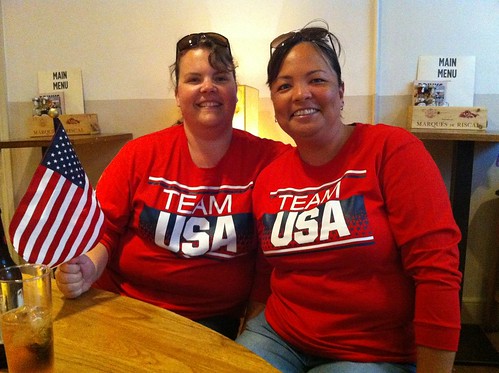Lynch: Team USA is trying to mimic Europe’s Ryder Cup magic, but missing the point
Team USA #TeamUSA

Comforting myths have a tendency to become conventional wisdom in golf. Thus, Jack Nicklaus never missed a putt that mattered and Europe’s Ryder Cup success owes to its players having lovingly bonded during dinners and airport delays. As the 71st hole of the ’77 Open and a chat with any European team veteran will attest, neither is entirely true.
There’s been plenty of rancor over the years in Europe’s team room, involving people who weren’t only not friends but who spent the week at each other’s throats, sometimes literally. There was great camaraderie, sure, but the Ryder Cup was not a buddies’ trip for the blue and yellow. To wit: two of the most talismanic figures during Europe’s glory days — Seve Ballesteros and Nick Faldo — would at times have struggled to find more than a few teammates who’d have swung a handbag in their defense in a barroom brawl.
What unity there was within Europe’s squad was seeded in common purpose, not in cordial relationships. Many of the continent’s top stars felt routinely disrespected on the PGA Tour and found solidarity in a shared objective — kicking the enemy’s arse. Bonds between players grew organically around that goal; they weren’t a prepackaged requirement to make the roster to begin with. And that’s where the U.S. team is missing the point in trying to imitate what the peddlers of hackneyed pablum claim is the secret to Europe’s success.
None of which is to say that harmony is unwelcome. It’s clearly preferable to discord in a stressful team room, but it’s nonessential. Many teams in many sports have benefitted from the inclusion of troublesome personalities. The 44th Ryder Cup next month in Rome, however, will test the idea that a team can be successful by explicitly excluding such.
Seve Ballesteros, left, and captain Tony Jacklin celebrate as Europe marched toward its first Ryder Cup win on U.S. soil in 1987 at Muirfield Village in Dublin, Ohio.
The players who didn’t receive one of Zach Johnson’s captain’s picks this week have limited right to complain. They had an opportunity to earn their spot and didn’t, leaving their fate hostage to whatever intangibles the skipper values most. Each of the selections Johnson made is defensible, notwithstanding the various quibbles put forth. Some of the metrics cited in second-guessing are questionable anyway. Like current form. What is “current” when the matches are a month away? Or performances in past Ryder Cups. As any financial advisor will tell you, results from 24 months ago predict nothing one month hence. If they did, ZJ would have picked DJ, who went 5-and-0 at Whistling Straits in ’21.
But the fact that Captain Johnson’s choices can be justified doesn’t mean the reasons underpinning his decisions are beyond scrutiny.
When the final U.S. team was announced, I received a text from a European veteran surprised by the non-selection of Keegan Bradley, whose two PGA Tour victories this season are more than any of the six men who were picked. “When you get a proven competitor with Ryder Cup pedigree in form, it should be enough,” he wrote. Bradley’s subsequent comment to Golf Channel’s Todd Lewis suggested he believes his omission is down to clubbiness: “I’ve always been an outsider in the sport but I have tried to get closer to the guys I thought would be on the team. I feel like moving forward I’m going to have to automatically qualify for the Ryder Cup.”
That perception was bolstered by Johnson’s comments during the announcement, in which popularity was repeatedly cited as a metric that mattered. Sam Burns “meshes well.” Rickie Fowler “makes every team room better.” Brooks Koepka’s “buddies wanted him on the team.” All of those things may be true and aren’t inherently problematic, but they illuminate the process by which the U.S. team is now chosen. Jordan likes JT. Scottie likes Sam. Everyone likes Rickie. Guys assured of being on the team are choosing their own “ride or dies” and the captain’s job is to provide air cover.
The PGA of America’s Ryder Cup task force was conceived amid unseemly acrimony — Phil Mickelson castigating Tom Watson for the loss at Gleneagles in ’14. Ever since, the mission has seemed blurred between having the U.S. team be competitive and having it be convivial. America’s lineup could romp to victory in Rome, in which case any questions about how it came together will be moot. But if it loses, the firing squad will be loading muskets before the European guys sober up from the celebrations. In that scenario, at least Johnson’s players will have plenty of friends at hand to lean on for support.
Story originally appeared on GolfWeek